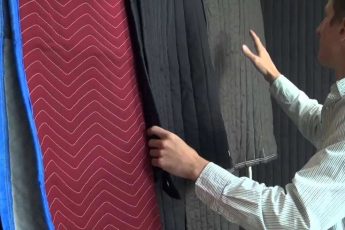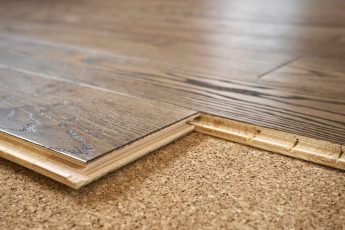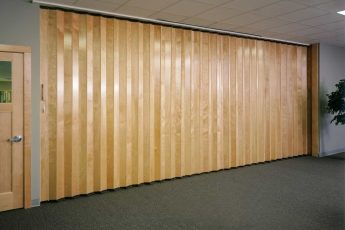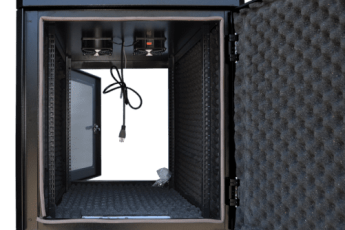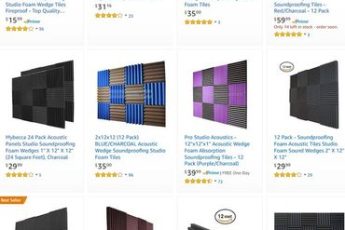We’ve all heard the saying, “Empty barrels make the most noise.” But did you ever stop and wonder why? You might think it’s just a proverb. Yet it has a surprisingly scientific side – acoustics, the study of sound. In this journey, we’ll uncover the truth behind the noisy barrels and the secrets of making them quiet through soundproofing.
We’ll explore why an empty barrel sings louder than its filled counterparts. This phenomenon is closely linked to how sound behaves and interacts with different surfaces and environments. It’s an orchestra of acoustics, resonance, reflection, and more.
The twist here? We won’t just satisfy our curiosity; we’ll also venture into practical applications – soundproofing. Not only can we shush our hypothetical barrel, but we’ll also learn some handy techniques for quieter homes or workplaces.
Let’s embark on this exciting journey and dive into sound, its properties, the unique traits of barrels, and how we can leverage this knowledge for our peace and quiet.

The Origin of the Proverb and its Physical Reality
The saying “Empty barrels make the most noise” isn’t just a metaphor used to describe talkative folks. Going back in time, this phrase has its roots firmly planted in human wisdom. It’s an observation of the physical world which found its way into our daily conversations.
On the other hand, the physical reality of this proverb stems from a fascinating field of physics called acoustics. It deals with how sound behaves when interacting with different objects or environments.
In the case of our barrels, their structure and composition play a crucial role in amplifying the sound, making them louder when empty.
Understanding the Basics of Sound and Noise
Before we delve deeper, it’s essential to differentiate between sound and noise. A sound is a form of energy created by vibrations. These vibrations travel through media like air, water, or solid materials. On the other hand, noise is often called unwanted or disruptive.
The transmission of sound involves the movement of these waves, which bounce off surfaces and eventually reach our ears. However, not all sounds are pleasant to our ears – some become noise, which is where our barrels come into play.
The World of Acoustics: Reflection, Absorption, and Reverberation
As sound waves travel, they interact with various surfaces through reflection and absorption. Reflection happens when sound waves bounce back off a surface. In contrast, absorption occurs when a material takes in the sound energy, converting it into heat and reducing the overall sound level.
Another crucial factor is reverberation, the persistence of sound after it’s been produced. In an enclosed space like a barrel, the sound waves bounce back and forth, creating an amplifying effect. It’s like a mini echo chamber, intensifying the sound until it fades.

The Science Behind Barrels and Sound Propagation
Why does a barrel amplify sound, especially when it’s empty? Two main factors come into play: its structure and material. A barrel, with its curved shape, helps the sound waves bounce around more inside. This bouncing around, or reverberating, creates an echo, making the sound louder.
When a barrel is empty, it lacks a medium like water or grains to absorb the sound. Hence, there’s more space for the sound waves to reverberate, amplifying the noise. This is why empty barrels seem louder – they echo the sound waves within their hollow structure.
Soundproofing Solutions to Combat Noise
The loud noise produced by empty barrels or any space can be curtailed using soundproofing techniques. These techniques often involve materials that absorb sound waves effectively. Some materials commonly used for soundproofing include foam panels, mass-loaded vinyl, and soundproofing drywall.
These soundproofing steps involve identifying the noise source, selecting the right material, and installing it appropriately. For instance, lining a barrel or room with sound-absorbing material can significantly reduce noise.
The Pros and Cons of Soundproofing
Every coin has two sides, and so does soundproofing. On the bright side, soundproofing your surroundings can provide you with a quieter environment, enhance your privacy, and improve your concentration.
However, it does have a few drawbacks. Soundproofing can be a costly process, both in terms of the materials and the installation process. Furthermore, soundproofed rooms might require special ventilation systems as the materials could affect air circulation.
Frequently Asked Questions (FAQs)
- Why do empty barrels make more noise?
This is due to the reverberation of sound waves within the barrel’s space, causing amplification or echo of the noise. - What is the basic principle of soundproofing?
Soundproofing uses materials that can absorb sound waves or block their path, reducing their impact and, thus, the noise level.

Conclusion: The Power of Silence in an Empty Barrel
We’ve uncovered the secret behind the noisy barrels and how soundproofing can silence them. From understanding the basics of sound and noise to exploring the world of acoustics and embracing practical noise reduction solutions, we’ve come a long way.
It’s not just about quieter barrels anymore; it’s about applying this knowledge to create more peaceful environments, be it your home, workplace, or studio. The beauty of silence isn’t just in the absence of noise but in the harmony of sounds that bring tranquillity.
So next time you hear an empty barrel or any resonating noise, remember you have the power to hush it up. Embrace the quiet, and enjoy the sweet symphony of silence.
